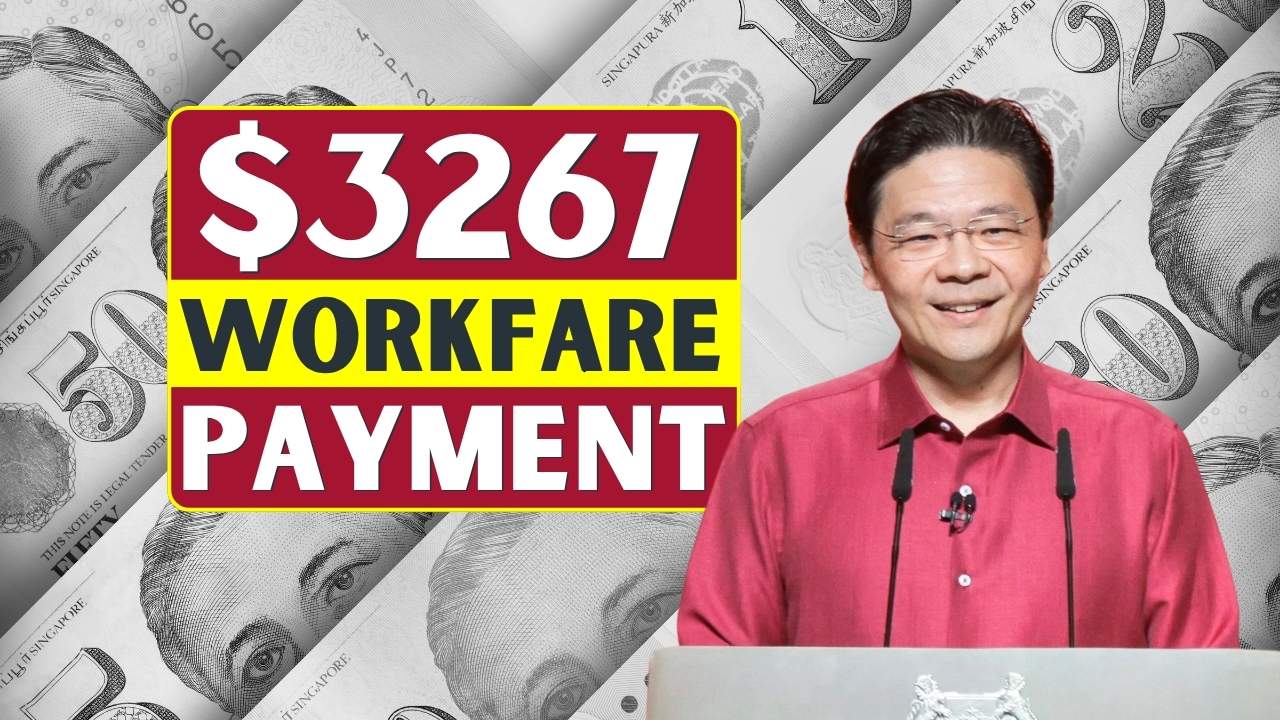Singapore’s economic structure has progressively adapted to include a rising group of workers engaged in the gig economy. As of 2025, this group now benefits from an enhanced Workfare Income Supplement (WIS) Scheme that delivers up to $3,267 annually to eligible platform workers. This major policy shift is designed to protect those who often work outside of traditional employment, such as ride-hailing drivers and delivery riders.
The enhanced scheme is a direct response to a growing workforce that contributes meaningfully to Singapore’s services sector but often lacks access to structured savings, employer benefits, or health coverage. Many of these workers do not receive regular Central Provident Fund (CPF) Contributions and are not typically included in long-term financial planning mechanisms.
The revised WIS model achieves a balance between short-term liquidity and long-term health security. It provides monthly payouts for easier budgeting and mandates MediSave contributions, thereby integrating day-to-day financial support with future healthcare readiness.
$3,267 Workfare Income Supplement 2025

Starting in January 2025, the payout structure for platform workers under the WIS scheme shifts from quarterly to monthly disbursements. This modification helps gig workers stabilize their finances in a more consistent and manageable way. The total possible benefit of $3,267 per annum is now distributed in 12 equal portions, with a clear division between cash assistance and medical savings.
Each month, eligible recipients receive a fixed percentage in cash and the remainder in CPF MediSave contributions. The new model not only allows workers to meet immediate expenses but also strengthens their ability to pay for medical care when needed. This two-pronged design is a deliberate attempt to address both financial and health-related vulnerabilities.
Eligibility Requirements for 2025 WIS Disbursements
To ensure precise targeting and fiscal responsibility, the WIS benefit comes with strict qualification criteria. These conditions are set to prioritize lower-income citizens and prevent higher-income freelancers or occasional workers from drawing unnecessary benefits.
| Eligibility Parameter | Requirement Details |
|---|---|
| Citizenship | Must be a Singapore Citizen |
| Minimum Age | 30 years (No age limit for persons with disabilities) |
| Monthly Earnings | Between $500 and $3,000 |
| Property Ownership | No more than one residential property |
| Annual Property Value Cap | Residence must have an AV of $21,000 or less |
| CPF Involvement | Mandatory MediSave contributions required |
These conditions work collectively to ensure that only economically vulnerable platform workers benefit from the payout, thus keeping the program targeted and efficient.
How the Monthly Payout Structure is Organized
In addition to streamlining the frequency of payments, the structure of distribution reflects thoughtful policy design. Each eligible worker will receive both cash and MediSave credits every month to address immediate consumption needs while building a health-focused savings pool.
The following table outlines the distribution formula applied under the new WIS payout structure:
| Payout Component | Percentage Allocation | Mode of Disbursement |
|---|---|---|
| Cash Support | 10% | PayNow (linked to NRIC) |
| MediSave Contribution | 90% | CPF MediSave Account |
For a worker qualifying for the maximum benefit, this translates to approximately $272.25 per month, with $27.23 in cash and $245.02 directed to MediSave. This distribution ratio prioritizes long-term medical preparedness while still offering modest monthly assistance for immediate necessities.
Simplifying Access Through Automatic Enrollment
To ensure broad participation and minimize bureaucratic delays, the enhanced WIS scheme utilizes an automatic enrollment mechanism. Eligible workers do not need to submit any application forms or supporting documents. Instead, enrollment is determined directly by the CPF Board, which assesses income and contribution data reported by platform operators.
Once a worker’s income and MediSave contributions are verified, payouts are initiated automatically. This system reduces administrative friction and eliminates common obstacles such as paperwork, confusion, or lack of digital literacy. It also ensures uniform treatment of eligible workers across all sectors.
However, the system’s success depends heavily on the accuracy of income data provided by platform operators. In cases where income is under-reported or contributions are missing, workers may lose out on their rightful benefits. Therefore, beneficiaries are encouraged to regularly monitor their CPF statements to identify discrepancies early.
Worker Responsibilities for Full Payout Access
While the scheme is automated and simplified, full benefit access requires consistent compliance. A break in eligibility, even for one month, can reduce the total payout for the year. To prevent this, platform workers should take proactive steps to ensure all contributions and earnings are properly recorded.
- Verify CPF MediSave contributions monthly using the CPF website or mobile application.
- Communicate promptly with platform operators if any discrepancy in reported income is noticed.
- Avoid frequent platform switching unless contributions can be smoothly transferred.
- Maintain a monthly income within the $500–$3,000 range to avoid disqualification.
- Keep informed of any CPF-related announcements that might affect eligibility rules.
Workers who follow these practices consistently throughout the year are more likely to receive the full $3,267 benefit without interruptions or deductions.
Why MediSave Matters in the Bigger Picture
Though the cash portion of the WIS may appear modest, the 90% MediSave contribution plays a far more substantial role in ensuring the worker’s well-being. This portion is credited directly to the CPF MediSave account and can be used for a range of healthcare-related expenses.
- Hospitalization expenses at approved healthcare institutions.
- Insurance premiums for MediShield Life and CareShield Life.
- Outpatient treatments, including for chronic illnesses or specific screenings.
For gig workers who generally do not have access to employer-sponsored medical benefits, a robust MediSave account becomes essential. It reduces reliance on personal savings or emergency borrowing during health-related events and enhances financial independence during old age or illness.
Reflecting a New Social Model for Inclusive Growth
The Workfare Income Supplement’s expansion in 2025 marks a critical policy milestone in Singapore’s commitment to inclusive economic growth. As more individuals rely on flexible, short-term, or gig-based work arrangements, traditional definitions of employment no longer capture the full scope of labor participation.
This policy acknowledges that modern workers contribute significantly to the economy, regardless of whether they operate full-time, part-time, or via digital platforms. By providing income support tied to CPF contributions, the government has effectively built a bridge between social inclusion and personal accountability.
Moreover, the WIS 2025 structure creates a resilient welfare mechanism that protects informal workers from falling through the cracks while reinforcing the importance of long-term savings and healthcare planning.
Balancing Present Needs and Future Security
The 2025 Workfare Income Supplement for platform workers provides more than just an annual payment of $3,267. It offers a blueprint for how countries can extend social security to workers who exist outside the standard employee-employer framework. Through monthly payouts, strict eligibility, auto-enrollment, and CPF-linked health savings, Singapore is pioneering a model of welfare that’s adaptable, targeted, and future-focused.
For workers, the key to unlocking the full value of this scheme lies in understanding the requirements, ensuring regular CPF contributions, and maintaining consistent income levels. The system is built on trust, automation, and proactive behaviour, empowering individuals to take charge of both their current finances and future well-being.



